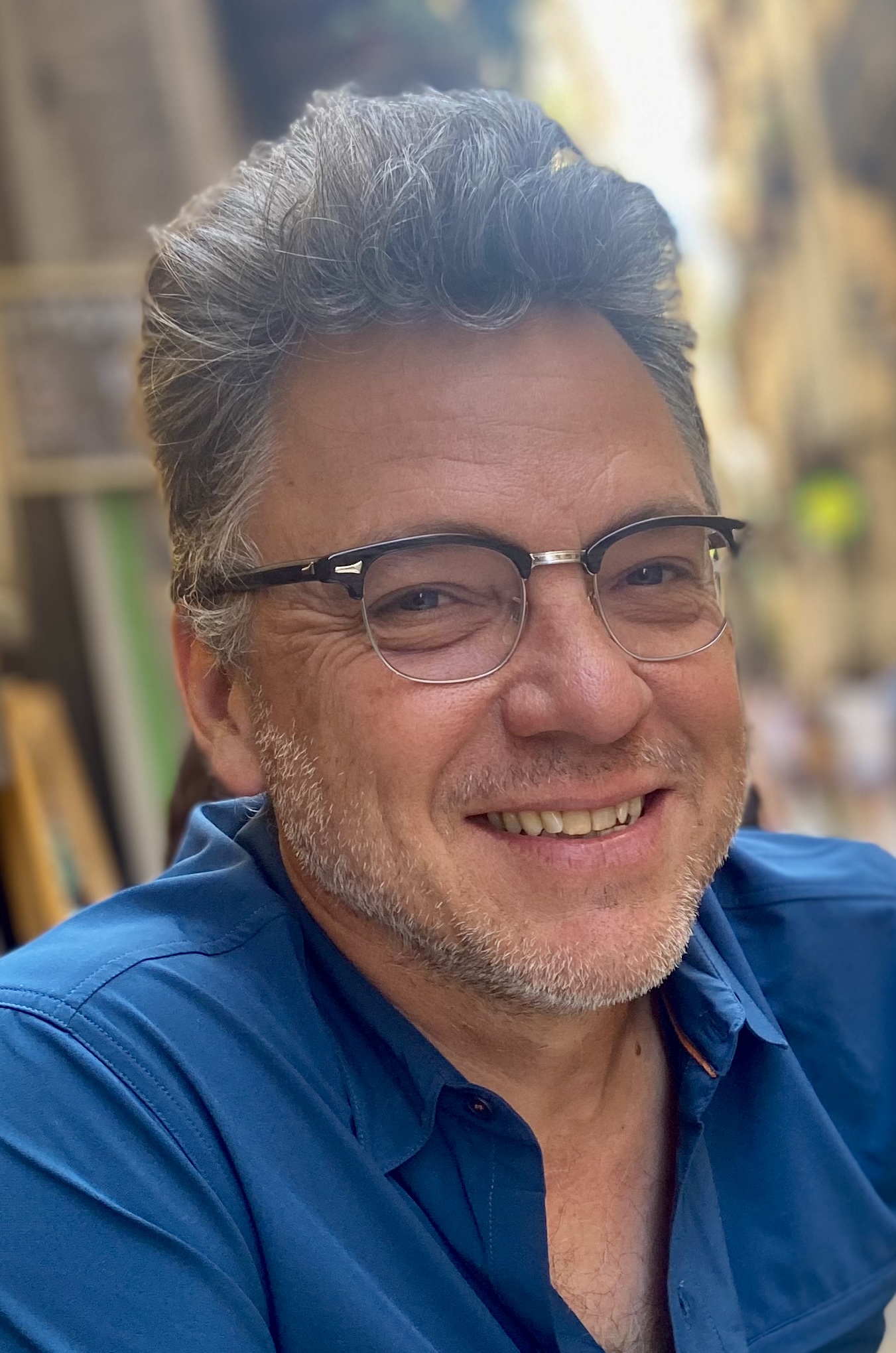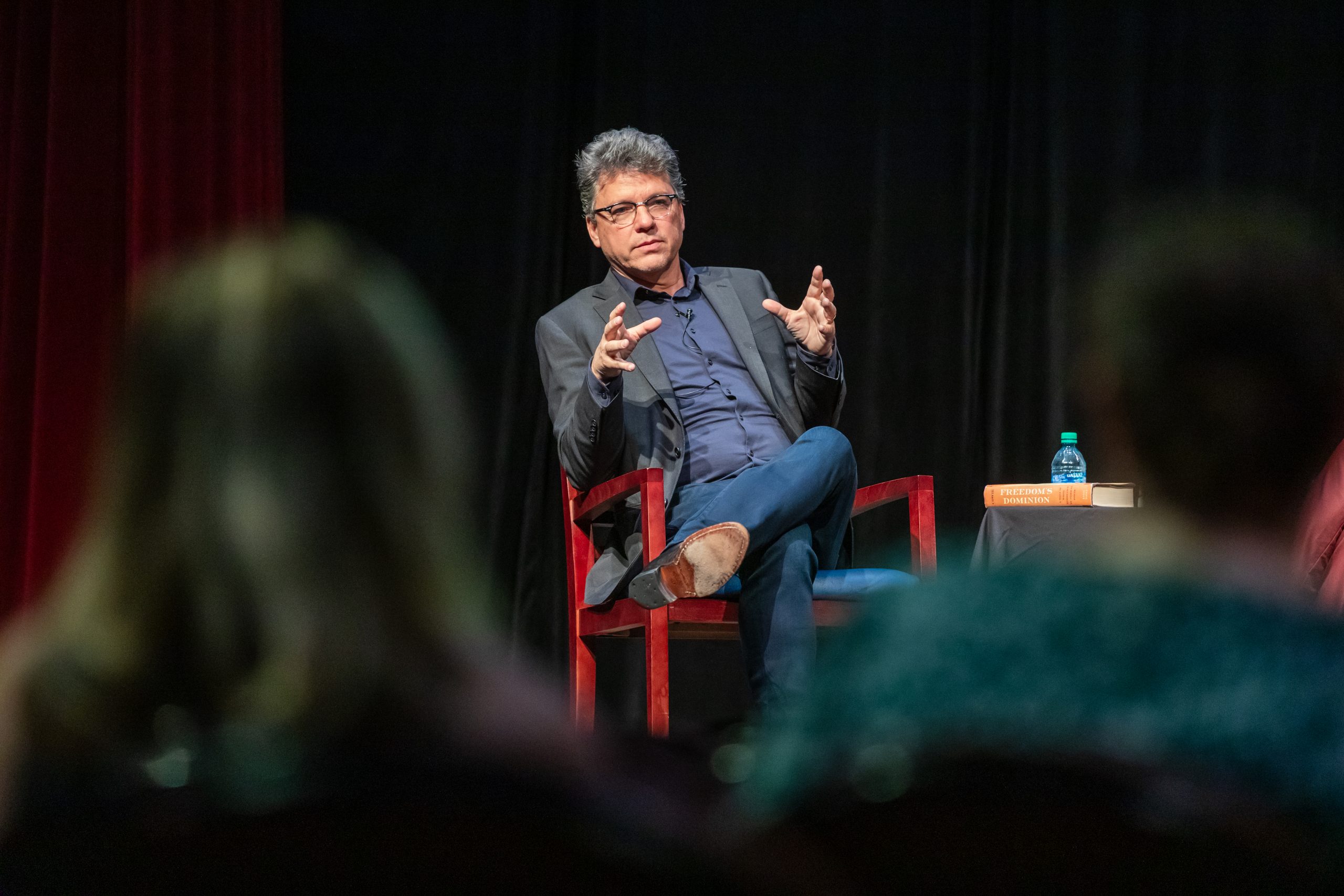
Jefferson Cowie, James G. Stahlman Professor of History at Vanderbilt University, was recently honored with a 2024 Guggenheim Fellowship—in part, in anticipation of his upcoming project, tentatively titled Crosswinds of a Common History, which will take a visionary approach to historical nonfiction.
Cowie has been widely celebrated for writing that explores societal and economic class structure in the context of democracy, including with a 2023 Pulitzer Prize in History for Freedom’s Dominion: A Saga of White Resistance to Federal Power. The work explores the nature of freedom in America through the lens of racial conflict across generations in a small Alabama county.
 His traditional approach to his previous publications, including Freedom’s Dominion, brought together archival record to illustrate the impact of the democratic process on the American population. To maintain objectivity, Cowie consciously omits personal interviews and perspectives to holistically present policy, economic disparity, racial tension and other events and elements of a period in history. His works show how these components of society intersected to create conflict or unity in the long term.
His traditional approach to his previous publications, including Freedom’s Dominion, brought together archival record to illustrate the impact of the democratic process on the American population. To maintain objectivity, Cowie consciously omits personal interviews and perspectives to holistically present policy, economic disparity, racial tension and other events and elements of a period in history. His works show how these components of society intersected to create conflict or unity in the long term.
“The Guggenheim Fellowship allows me to explore how a more creative approach to studying the past might work, who I can be as a writer and public intellectual, but also remain rooted in the systems of historical reasoning. This honor provides justification that my writing has reached a point where I can begin to experiment,” Cowie said.
“We are thrilled that Jeff Cowie’s groundbreaking work has been recognized through these highly prestigious awards. I wish him the best with this next project as he takes new creative risks in interdisciplinary inquiry,” said C. Cybele Raver, provost and vice chancellor for academic affairs.
Cowie’s vision for Crosswinds is inspired by Uruguayan writer Eduardo Galeano, whose three-volume history of Latin America integrated cultural elements, references to nature, literature and documented individual experiences to provide new context for historical events. The series reframed centuries of history before its 1984 publication and changed perspectives on the impact of early discovery and colonization.
“I have always found his books compelling, kind of poetic and very real,” Cowie said, drawing a parallel to Crosswinds, where he hopes to incorporate unusual, largely unknown, concurrent elements to shed new light on the details of an event.
This prestigious honor is perhaps a culmination of years of notable scholarship further stoked by an environment where Cowie has been able to find support for challenging conventional methods of historical storytelling.
“A great university like Vanderbilt supports people like me who have a hunch that this new approach is needed—and that it could change the way people think about the American past,” he said. “That would be my hope, that people will read this book and feel they’re floating on a different version of the past than they previously knew.”
As a Guggenheim Fellow, Cowie will receive a stipend to support his work.
“Jeff continues to receive high honors and well-deserved recognition for his innovative approach to history,” said Timothy P. McNamara, interim dean of the College of Arts and Science. “I am thrilled that he has this additional support to be able to bring forward new ideas and inquiries to ‘old stories’ that could have newfound impact in our world.”

Arriving at Vanderbilt in 2016 after 19 years at Cornell, Cowie says he has found “one of the best history departments in the country.” His teaching is enhanced by open discussion and discourse in the classroom, and he enjoys leveraging the various viewpoints and curiosity of his students to explore society and democracy.
While certainly honored by the recognition of his work through the Guggenheim Fellowship and the Pulitzer prize, Cowie is mindful of the continuous, consistent support around him. For example, he has been one of this year’s faculty fellows at Vanderbilt’s Robert Penn Warren Center working on “The Place of Memory.” This experience has provided a rich and robust environment to begin the Crosswinds project.
“I am grateful to an institution that provides tremendous access to resources to help me do this job, and that is the greatest gift any person interested in the life of the mind could ever get,” he said.